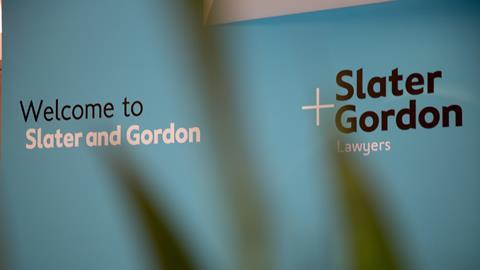Judgment has been reserved in a case in which national firm Slater and Gordon is fighting off a claim that its personal injury conditional fee agreements are unenforceable due to an ‘effective contractual cap’.
The hearing, held before costs judge Rowley in the Royal Courts of Justice, dealt with preliminary points of dispute in test claims which seek a solicitor-client assessment of bills rendered by the firm. The claimants argue the charges are unfair.
Only four of the 10 test claimants gave evidence during the five-day hearing. The judge refused to allow evidence from absent claimants on the ground that they could not be cross examined.
In closing submissions Roger Mallalieu KC, for the claimants, said: ‘We say that the evidence, I use the term in inverted commas, provided by Slater and Gordon in response to the claimants’ evidence is inconsequential, unreliable and barely in existence.’ The firm’s sole witness ‘effectively had no proper evidence to give’ as she was ‘not a witness of fact to any of the calls [and] she does not even provide hearsay evident in relation to those calls’.
Mallalieu said the firm’s argument, by way of Ryan’s evidence, was ‘that the script would have been followed’ was ‘the shakiest of foundations’. He added: ‘We do not even have a script for five of those claimants, including two of the witnesses.’
Read more
He told the court that the witnesses said they ‘felt under pressure to sign the [claim] documents’. He added explanations of the conditional fee agreement were ‘plainly not’ adequate ‘because frankly there are not intended to be’.
‘When you consider the CFA properly that combination of factors means it is highly likely that the cap would be reached whereas a different range of factors might mean it would not be,’ he said.
Robert Marven KC, for Slater and Gordon, said: ‘Although my learned friend is agnostic on this, my word not his, it cannot be sensibly disputed that these agreements are not CFAs. Not only because they have CFA written all over them, but they clearly fulfil the definition in the statute. It is obvious this agreement only provides in general terms for fees to be payable on a win. Clearly [these] are CFAs with a success fee as well.
‘It is not any part of the claimants’ case to say under the CFA regime it is impermissible to cap your charges…by reference to a percentage of damages. The claimants know perfectly well these are CFAs and challenges them as such, they challenge hourly rates, they challenge the success fee.
‘I do say that the point that is made…would have the consequence that every CFA that had a cap by reference to damages either on a success fee or in charges generally could be a DBA and if you follow the claimant’s challenge through, those would be unenforceable DBAs [damages based agreement].
‘The consequence would be extraordinary if… [a] CFA in personal injury claims would be a DBA because of a damages cap. Even if this was a DBA, it is an enforceable DBA. The DBA regime only applies to that part of the retainer which deals with payment from damages. That is compliant.’
He added: ‘Even if the criticism of my client was right, it does not make the costs claimed unreasonable. From all of the claimants we have signed agreements. They could have asked for more time, they could have asked for more explanations, they could have cancelled at any point in 14 days.’
The witnesses ‘had options’ but did not turn to them, Marven said, adding that it was ‘simply wrong to [now] turn around and say the charges are unreasonable or unfair’.
Judgment was reserved.



























